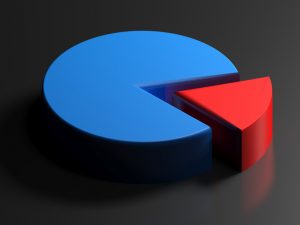There have been two infliximab biosimilars available in the US for over a year, but Johnson & Johnson says reference biologic Remicade still holds a 93% volume share.
In 2016, Pfizer launched Inflectra in the US. The following year, Merck & Co. launched Renflexis. With the ensuing price war, the infliximab biosimilars had been touted to end reference biologic Remicade’s market dominance.
But after the first full year with all three infliximab products on the market, J&J has reported in its Q4 2018 financials that it still holds 93% of the market share by volume.

Image: iStock/carlotoffolo
However, sales of the immunology biologic dropped globally by 15% (19% in the US) on last year, due to increased discounts and rebates, as well as the “modest share loss to biosimilar competition.” Full year US Remicade sales stood at $3.7 billion (€3.3 billion) for 2018, down from $4.5 billion in 2017.
Neither Inflectra nor Renflexis have been deemed interchangeable in the US, meaning that while they can be prescribed for the same indications as Remicade, they cannot be substituted at the pharmacy level without the involvement of a physician or clinical decision maker.
In June 2018, J&J said the lack of interchangeable biosimilars keeps Remicade sales erosion at a minimum. “It is a competitive marketplace and we are competing on the basis of value and price,” president of Janssen Immunology Scott White said at the time.
‘Growth in the face of biosimilar competition’
Looking ahead to 2019, J&J has forecasted a headwind of approximately $3 billion from generic and biosimilar competition. The firm also told investors it expects to grow its pharma division organically at about 6.5% over the next 12 months, thus balancing operational sales growth out to between two and three percent.
“With Pharmaceuticals, again, I just really think it speaks to the tremendous strength and health of this business,” said CFO Joseph Wolk on the call (transcript here).
“If you think about a $3 billion to $3.5 billion headwind with respect to generic and biosimilar competition and we’re still talking about growth, most companies would be talking about contraction, and the dialogue would be when you’re going to get back to growth. It really speaks to the health of the business.”
For the full year, J&J reported worldwide revenues of $40.7 billion in its pharma sector, up 12% on 2017.
